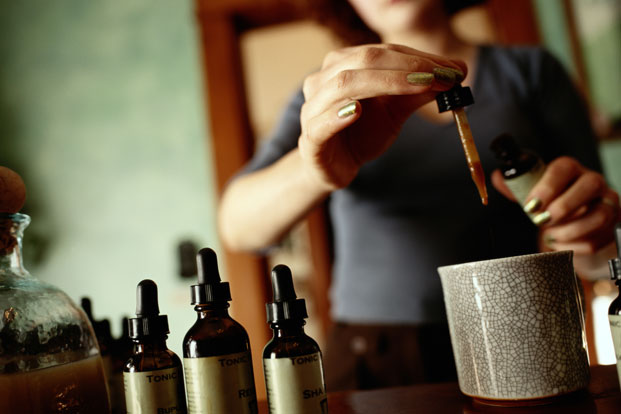Two Denver parents found out the hard way that some doctors are not really all that they appear to be.
Desperate to find help for their teenage son, who was dying of cancer, David and Laura Flanagan turned to Dr. Brian O’Connell. He assured them that he could cure their 18-year-old son, Sean, of late-stage bone cancer by using photoluminescence, a form of energy medicine.
O’Connell claimed he had healed others by using the technique, which used ultraviolet light waves to illuminate a blood sample. The illuminated blood would then be injected back into the body via a hydrogen peroxide solution.
The Flanagans were impressed with O’Connell’s credentials, which filled an entire wall in his office. He presented himself as a naturopathic doctor whose unconventional approach was grounded in established science.
Unfortunately for the Flanagans and their son, O’Connell was a complete quack. Their son died two days after his treatment began, about six months sooner than predicted by other medical professionals.
O’Connell was no doctor. He was later arrested for practicing medicine without a license. When the O’Connells saw him being arrested on television, they contacted authorities, and after hearing their horror story, criminally negligent homicide charges were added to O’Connell’s charges. He was later convicted and is serving a 13-year sentence.
Alternative Care Licensing
Regulations for being able to practice medicine ethically and legally were established in the United States more than a century ago. The Supreme Court first ruled on these regulations in Dent v. West Virginia, wherein the state refused a license to an alleged “botanical remedies” doctor.
That case has since been the foundation for a state’s ability to regulate the medical profession and prosecute a variety of alternative and complementary medicine practitioners.
Medical licensing grants physicians leeway to diagnose and treat disease. But licensing for so-called allied health professionals, who are granted “limited” licensure, has a narrower definition. Anyone who exceeds that scope is engaging in the unlawful practice of medicine.
The prosecution of several alternative medical practitioners led to a movement to create professional licensing standards for complementary therapies. Today, chiropractors are licensed in every state of the United States, while acupuncturists and massage therapists are licensed in 40 states. Naturopathic physicians are currently licensed in 15 states.
These licenses grant complementary and alternative medical practitioners a designated range of practices. For example, a chiropractor can manipulate the spine and do certain ancillary therapies but can’t diagnose or treat disease. Likewise, massage therapists can’t practice psychology.
Some of it is a gray area. But it at least sets boundaries and parameters for the treatments these practitioners can administer.
Gray Areas of Licensure
Because licensing boards can’t be in every office at every moment, licensing is not a failsafe guarantee of sound medical advice. Many doctors practice alternative and complementary medicine in several forms, and while a massage therapist may be licensed to perform that act, he or she may not be the best choice for biofeedback therapy.
Keep in mind that not every complementary and alternative therapy has been vetted by medical professionals for safety and efficacy. While the boundaries between traditional medicine and alternative choices are constantly being modified, it’s best to be skeptical about most claims and treatments. Check with your traditional medical doctor before embarking on any course of treatment and gather information from several sources.
Evaluating Alternative Medicine Claims
The best evidence for whether any particular treatment works is a quality clinical evaluation done by reputable hospitals, institutions and research firms. Large, controlled sample tests are usually published in well-known medical journals after prominent medical claims evaluators review them.
These peer-reviewed studies are the best assurance of embarking on a path that has been navigated successfully. Most of the studies will be available in libraries, and many of them are found online. Care should also be taken if the studies have only been conducted on a few people, only on animals or are only done in a single study
While the Internet is a wonderful resource for information, be careful about the sources, particularly when it comes to complementary or alternative medicine. Multiple sites that present basically the same information may be from the same source that’s trying to tout or sell a particular treatment. See whether qualified health professionals review the material, the date when the information was published and particularly look for the logo from the Health on the Net Foundation, which is a seal of approval from that organization as to credibility.
Natural May Not Be Safe
Many people make the mistake of thinking a natural procedure, practice or supplement means that the recommended treatment is safe. Nothing could be further from the truth, particularly if the patient is already on another form of medication. Many herbal remedies, minerals and vitamins can have serious side effects, particularly if the recommended dosage is exceeded. They may also nullify the benefits of the medications that traditional Western have recommended.
Keep in mind that the government does not regulate claims about supplements, and many herbal treatments and supplements may not contain the products they tout, may be a weaker or stronger formulation than advertised or may contain harmful additives. Many supplements are sold via brilliant marketing and are not miracle cures. This is particularly true for incurable diseases like cancer, diabetes, Alzheimer’s disease or others. Desperate people are always searching for hope, and in their hour of desperation, may turn to the wrong resources.
It is always best to be skeptical about any treatment or product, particularly if it makes big promises, tosses around vaguely medical terms like detox, and bills itself as a cure-all. Even products that offer guarantees or limited offers are not necessarily trustworthy because they can steal valuable time from a patient that could be used on more reliable treatments.

Leave a Reply